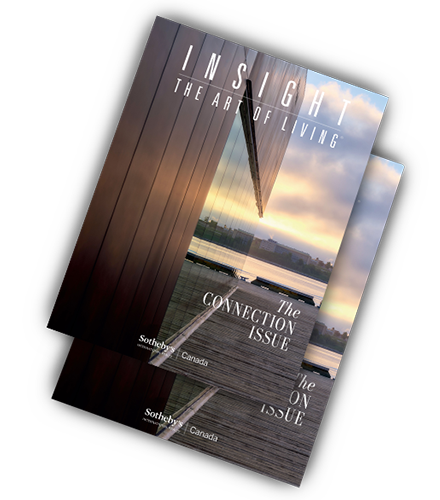A new generational trends report released today by Mustel Group and Sotheby’s International Realty Canada reveals that an overwhelming majority of urban Canadians across the Baby Boomer, Generation X, Millennial and Generation Z adult demographic remain confident in the long-term financial performance of residential real estate. Despite rising interest rates, stubborn inflationary pressures and economic uncertainty, nearly half (49%) of urban Canadians ages 18–77 believe that a residential real estate purchase will perform the same or better than their other financial investments in the next 12 months, while a resounding 60% believe it will perform the same or better than their financial investments in the next 10 years. In fact, over one-third (35%) report that they are even more likely to purchase a primary residence in the next five years than they were in January 2020 before the advent of the pandemic, while one-third (35%) of those who already own a primary home report that they are now more likely to sell within the next five years compared to their intentions pre-pandemic.
The Mustel Group and Sotheby’s International Realty Canada “2023 Canadian Real Estate Market Sentiment: Generational Trends Report” is Canada’s first in-depth study comparing the relative confidence levels of Baby Boomers (ages 58–77), Generation X (ages 43–57), Millennials (ages 27–42) and Generation Z adults (ages 18–26) as it relates to the current housing market, and to examine changes in consumer sentiment and housing mobility aspirations since January 2020. It is the first in a multi-part report series studying the housing intentions and preferences across multiple generations in 2023 and is based on a survey of 2,000 Canadians ages 18–77 in the Vancouver, Calgary, Toronto and Montreal Census Metropolitan Areas.
“One of the most transformative and enduring social and economic outcomes of the pandemic is that Canadians now place a heightened importance on primary home ownership, not only as an investment in their lifestyle and personal security but as an investment in their financial future,” says Don Kottick, President and CEO of Sotheby’s International Realty Canada. “Even though Canadians are now confronting the challenges of steep interest rate hikes, rising inflation, mounting economic uncertainty and significant housing affordability concerns, the results of the Mustel Group/Sotheby’s International Realty Canada survey reveal that confidence in our real estate market remains high and that demand for housing and housing mobility across every generation is more pressing than ever.”
Highlights
- Confidence in the performance of real estate over the next 10 years is high across all major metropolitan areas, with 6 in 10 (60%) of urban Canadians between the ages of 18–77 years across the Baby Boomer, Generation X, Millennial and Generation Z adult demographics believing that a home or residential real estate purchase will perform the same or better than their other financial investments in the next decade, including over 1 in 3 (35%) who believe real estate will perform better.
- Nearly half (49%) believe that a home or residential real estate purchase will perform the same or better than their financial investments in the next 12 months, including 1 in 4 (23%) who believe that real estate will perform better.
- Overall, across all markets, Baby Boomers are the most likely generation to believe real estate will outperform their financial investments in one year, as well as within 10 years, with 28% and 44% doing so, respectively.
- 1 in 3 (35%) urban Canadians between the ages of 18–77 are now more likely to buy a home in the next five years as compared to their intentions in January 2020 before the COVID-19 pandemic, a finding that is relatively consistent across all metropolitan areas and generations surveyed. This includes 12% who are now “much more likely” to buy.
- 1 in 3 (35%) of urban Canadian primary homeowners ages 18–77 are more likely to sell a home within the next five years compared to their intentions in January 2020, including 14% who are now “much more likely” to sell.
- The pandemic has had the least influence on Generation X and Baby Boomers’ likelihood to buy or sell, with more than 4 in 10 (41% and 44%, respectively) reporting no change in their propensity to buy compared to January 2020 and another 4 in 10 (43% and 42%, respectively) reporting no change in their propensity to sell.
- In contrast, urban Millennials are now less likely than Generation X and Baby Boomers to sell their primary residence in the next five years compared to pre-pandemic, with 32% reporting a reduced propensity to sell, compared to 21% and 23% amongst Generation X and Baby Boomers respectively.
Looking for guidance in a changing market?
Our experienced real estate advisors are here to help you make informed decisions in a constantly evolving market. Ask us about opportunities and local market conditions, and let us prepare you for your next move. We offer personalized attention tailored to your needs, regardless of the neighbourhood or price of your home. Connect with a real estate agent.
*Disclaimer
The information contained in this report references survey results, plus market data from MLS boards across Canada. Sotheby’s International Realty Canada cautions that MLS market data can be useful in establishing trends over time but does not indicate actual prices in widely divergent neighbourhoods or account for price differentials within local markets. This report is published for general information only and is not to be relied upon in any way. Although high standards have been used in the preparation of the information and analysis presented in this report, no responsibility or liability whatsoever can be accepted by Sotheby’s International Realty Canada, Sotheby’s International Realty Affiliates or Mustel Group for any loss or damage resulting from any use of, reliance on, or reference to the contents of this document.



